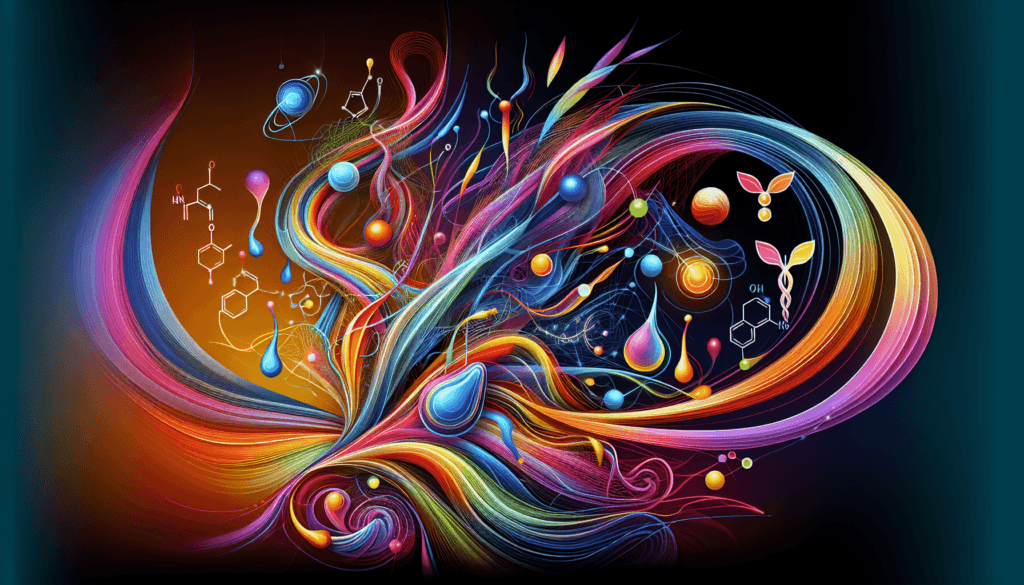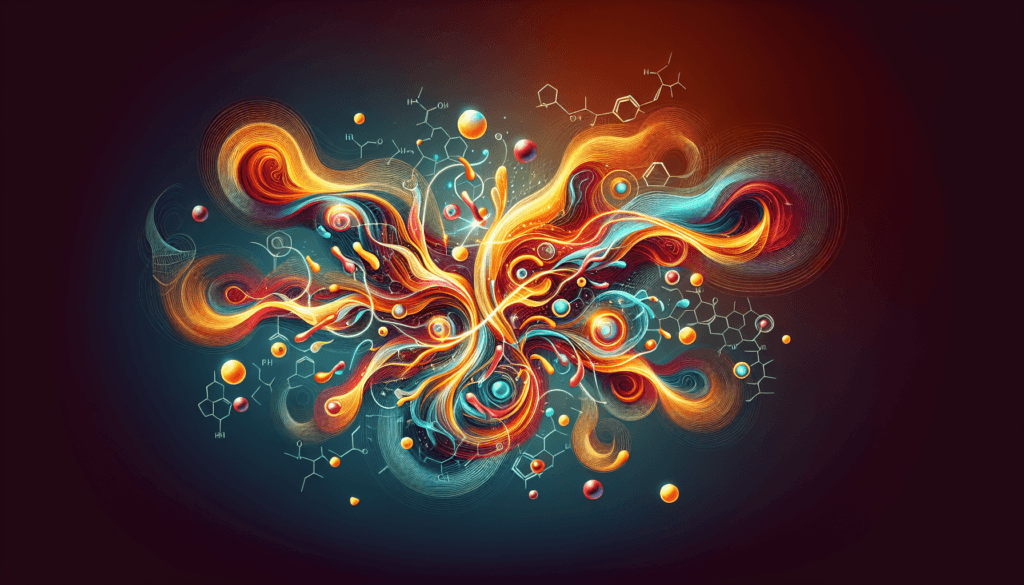Have you ever wondered what keeps your body functioning so seamlessly? In every nook and cranny, working tirelessly behind the scenes, are some remarkable chemical messengers known as hormones. These tiny powerhouses play a crucial role in regulating almost every aspect of your health and well-being.

Table of Contents
Hormones: An Overview
(return to top)
Hormones are like the quiet directors of a symphony, ensuring that every instrument—every organ and cell in your body—plays its part at the right time. But what exactly are they? In simple terms, hormones are chemical substances produced by glands in your endocrine system. They travel through your bloodstream to tissues and organs, delivering messages that initiate various bodily functions.
The Role of Hormones
(return to top)
Hormones influence almost every cell and process in your body. They regulate growth and development, metabolism, sexual function, reproduction, and even mood. Think of them as text messages sent from one part of your body to another, ensuring everything is in sync.
How Do Hormones Work?
(return to top)
Hormones work by binding to specific receptors located in or on target cells. This binding triggers a response, either activating or inhibiting certain functions within the cell. Each hormone has a unique shape, fitting like a key into a lock on its corresponding receptor.
The Endocrine System: Hormone Headquarters
(return to top)
Picture the endocrine system as a network of communication. It consists of various glands throughout your body that produce and release hormones. These glands, though small, have significant impacts on your body’s functionality.
Key Players in the Endocrine System
(return to top)
Here’s a closer look at some of the major glands and the hormones they produce:
| Gland | Hormone(s) Produced | Function |
|---|---|---|
| Pituitary Gland | Growth hormone, TSH, ACTH | Regulates growth, thyroid function, stress response |
| Thyroid Gland | Thyroxine (T4), Triiodothyronine (T3) | Controls metabolism |
| Adrenal Glands | Cortisol, Adrenaline | Manages stress, metabolism, immune response |
| Pancreas | Insulin, Glucagon | Regulates blood sugar levels |
| Ovaries | Estrogen, Progesterone | Controls female reproductive functions |
| Testes | Testosterone | Controls male reproductive functions |
Pituitary Gland: The Master Gland
(return to top)
Often called the “master gland,” the pituitary gland controls other glands in the endocrine system. It sits nestled at the base of your brain, orchestrating an array of hormones that regulate vital bodily processes.
Thyroid Gland: Metabolism Maestro
(return to top)
Located in your neck, the thyroid gland produces hormones that oversee your metabolism—the rate at which your body converts food into energy. It ensures your energy levels stay consistent, no matter what.
Adrenal Glands: Responding to Stress (VIDEO)
(return to top)
Perched atop your kidneys, the adrenal glands produce adrenaline and cortisol. Need to sprint away from danger or cope with stress? Your adrenal glands have got it covered. These hormones prepare your body for a “fight-or-flight” response, heightening your senses and readying your muscles.
Types of Hormones
(return to top)
Hormones can be classified based on their chemical structures and mechanisms of action. Understanding these differences can shed light on their diverse functions.
Steroid Hormones: Lipid Lovers
(return to top)
Steroid hormones, such as estrogen and testosterone, are lipid-based. They pass easily through cell membranes, influencing functions by altering gene expression. Their impact is usually slower and more sustained compared to other hormone types.
Peptide Hormones: Protein Builders
(return to top)
Peptide hormones, like insulin and growth hormone, are made from amino acids. They can’t pass through cell membranes directly, so they bind to receptors on the cell surface, triggering internal reactions that generate specific responses.
Amino Acid Derivatives
(return to top)
Hormones like thyroxine and adrenaline are derived from amino acids. Despite their small size, they are potent and effective messengers, capable of eliciting swift and intense responses.
Important Hormones and Their Functions
(return to top)
To delve deeper into understanding hormones, let’s explore some key hormones and their critical functions:
Insulin: The Glucose Gatekeeper
(return to top)
Produced by the pancreas, insulin plays a vital role in regulating blood sugar levels. It allows your cells to absorb glucose from the bloodstream, storing it for energy and keeping blood sugar levels balanced. Problems with insulin production or function can lead to diabetes, a chronic condition affecting millions worldwide.
Cortisol: The Stress Manager
(return to top)
This hormone acts like your body’s alarm system. Released by the adrenal glands in response to stress, cortisol helps adjust metabolism, reduce inflammation, balance blood sugar levels, and manage memory formulation. However, chronic stress and elevated cortisol levels can lead to adverse effects, including anxiety, weight gain, and sleep disorders.
Estrogen and Testosterone: The Gender Definers
(return to top)
Responsible for secondary sexual characteristics, estrogen and testosterone play pivotal roles not only in reproduction but also in bone health, mood stabilization, and energy levels. These hormones are instrumental in puberty and maintaining overall vitality throughout life.

The Importance of Hormonal Balance
(return to top)
Hormonal balance is essential for your health. An imbalance can lead to various symptoms and health issues, ranging from mood swings and fatigue to more severe disorders like hypothyroidism or polycystic ovary syndrome (PCOS).
Common Hormonal Imbalances
(return to top)
Understanding common hormonal imbalances can help you seek timely medical attention. Some prevalent imbalances include:
- Hypothyroidism: An underactive thyroid gland leading to fatigue, weight gain, and depression.
- Hyperthyroidism: An overactive thyroid causing weight loss, rapid heartbeat, and anxiety.
- Polycystic Ovary Syndrome (PCOS): A condition stemming from excess androgen (male hormones) in females, causing irregular menstrual cycles, acne, and hair growth.
- Adrenal Insufficiency: Inadequate production of adrenal hormones, leading to chronic fatigue and muscle weakness.
Maintaining Hormonal Health
(return to top)
Supporting your hormonal health is crucial for your overall well-being. Here are some practical tips to promote balance:
Nutrition: Fuel for Hormone Production
(return to top)
A balanced diet rich in fruits, vegetables, lean proteins, and healthy fats supports hormone production and function. Certain nutrients, such as omega-3 fatty acids, zinc, and vitamin D, are particularly beneficial for hormonal health.
Regular Exercise: A Natural Balancer
(return to top)
Physical activity has a profound impact on hormone levels. It aids in regulating insulin, cortisol, and endorphin levels, promoting improved mood and better stress management. Just 30 minutes a day can work wonders for your hormonal health.
Adequate Sleep: The Rejuvenator
(return to top)
Consistent, quality sleep is crucial for hormonal balance. Sleep deprivation can disrupt the balance of ghrelin and leptin, hormones involved in hunger regulation. Prioritize a sleep schedule and create a peaceful environment to improve the quality of your rest.
Stress Management: Cortisol Control
(return to top)
Chronic stress wreaks havoc on hormonal balance, primarily through elevated cortisol levels. Engaging in relaxation techniques, such as meditation, yoga, or deep-breathing exercises, can significantly aid in managing stress and maintaining hormonal harmony.
When to Seek Help
(return to top)
Recognizing the signs of hormonal imbalance is essential for timely intervention. If you experience symptoms like persistent fatigue, unexplained weight changes, irregular menstrual cycles, or mood swings, consider consulting a healthcare professional.
Possible Diagnostic Tests
(return to top)
Healthcare providers may recommend tests to assess your hormone levels, including blood tests, saliva tests, or urine tests. These can help diagnose specific imbalances and guide appropriate treatment.
Treatment Options
(return to top)
Treatment for hormonal imbalances varies depending on the cause and severity of the condition. Options may include lifestyle changes, hormone replacement therapy, medications, or alternative therapies.
Conclusion: Embracing Your Hormonal Symmetry
(return to top)
Hormones, while often unnoticed, wield significant power over your body’s functionality. By understanding their roles and promoting hormonal health, you can enhance your well-being and vitality. Remember, your body is an intricate system, and maintaining balance within it is key to living a healthier, happier life.
In exploring the realm of hormones, you’ve embarked on a fascinating journey toward understanding yourself better. Acknowledge these dynamic messengers and the vital tasks they perform for you each day, and you’ll appreciate the intricate dance they conduct within you.





